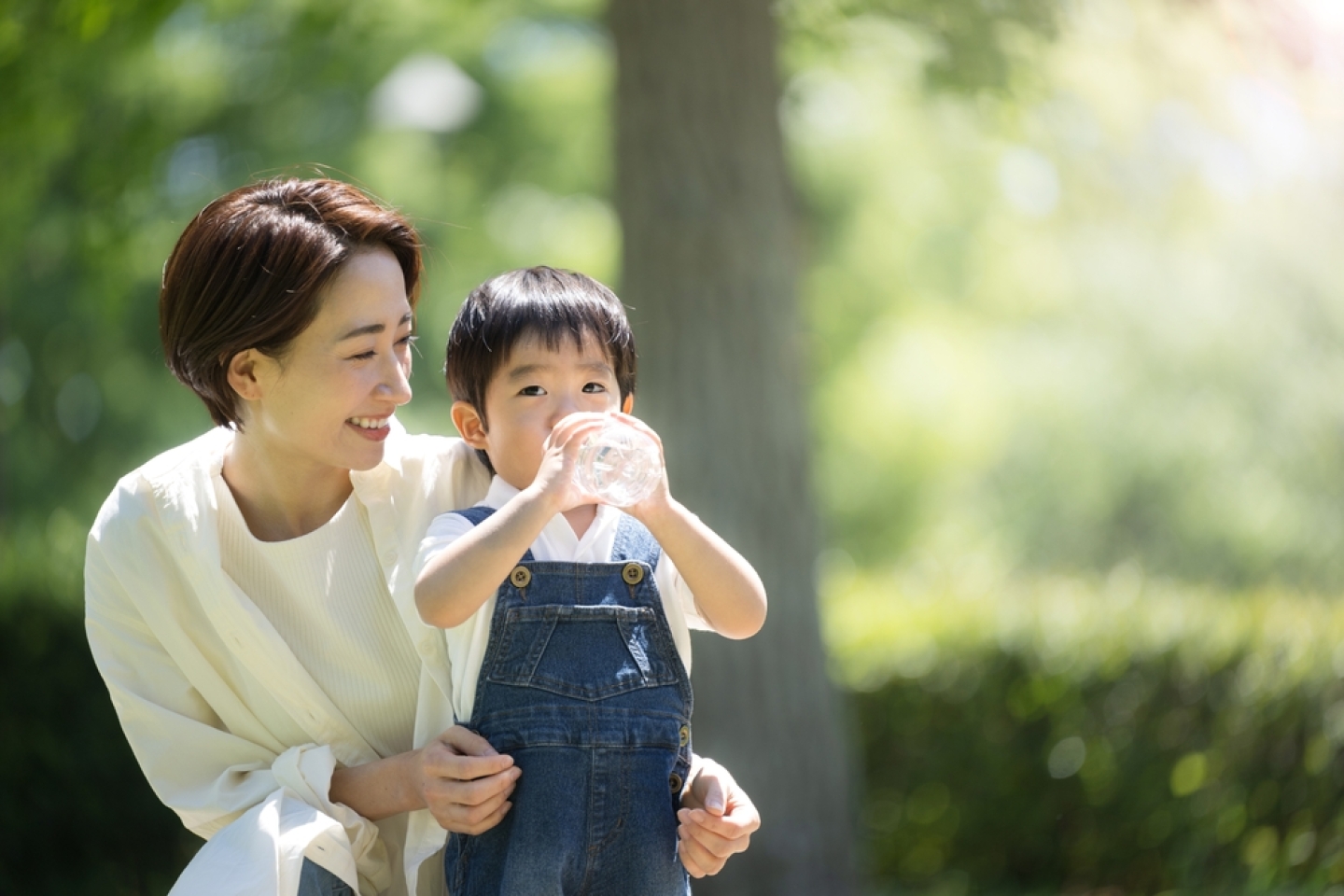
Water composes from 55 to 75 percent of the human body. Usually, we take in enough H2O to meet our needs and maintain the right levels of that indispensable nutrient. But it’s easy, especially during the hot summer months, to lose water through perspiration, and we may lose more of it than we take in.
“We need water to protect our organs and our joints, regulate our body temperature and blood pressure, and help with digestion,” says Isabel Reckson, a registered dietitian and certified diabetes care and education specialist at Weill Cornell Medicine. “Water also plays an important role in helping us stay focused and attentive.”
Dehydration becomes an issue during hot weather, she explains, as well as during an illness and when taking certain medications. Babies and younger children along with older adults are at highest risk of becoming dehydrated.
Read on for Reckson’s best advice on helping children stay hydrated and taking care of your own water needs at the same time—this summer and all year long.
The guidelines vary, depending on a child’s activity level, size and age. The general recommendations are:
Infants over 6 months who are eating solids generally need much less water than older kids: about 2 to 8 ounces a day.
Generally, yes. However, not all beverages are the same. Reckson calls attention to beverages featured on TikTok (a favored social media platform among tweens and teens) that contain artificial or alternative sweeteners such as Stevia, monk fruit, sucralose and aspartame. These are recognized as safe when ingested in moderation. For kids, though, “there are concerns around whether diet drinks actually make them hungrier, or whether they may have negative effects on heart health or behavior down the road.
“It’s okay to have an occasional diet soda or vitamin water zero, but I wouldn’t use these as a replacement for water,” she continues. “Instead, I’d choose fruit-infused or naturally flavored waters that aren’t sweetened with an artificial sweetener or with sugar, for that matter.”
The easiest way to see if your child is hydrated is to check their urine. If it’s dark yellow, orange or brown, there’s dehydration going on, with brown urine indicating the most severe level. “What we want to look for is pale yellow,” says Reckson.
The signs and symptoms of mild dehydration may also include dizziness, lightheadedness and less urine overall. Fewer wet diapers may also be a sign that your infant or toddler is dehydrated. You may also notice that your child has a dry tongue, lips, mouth and throat.
Severe dehydration can cause lethargy, cold hands and feet, faster breathing, a faster-than-normal heart rate, irritability and confusion.
Symptoms can be similar in adults and kids, but adults may also experience the following:
And severe dehydration in adults may cause:
In the case of severe dehydration, reach out to your family physician or, depending on the level of concern, go to the Emergency Room so that you, or your child, can receive IV fluids.
The best thing to do is ask your pediatrician or family physician whether they think it’s safe to rehydrate at home or whether you need to be seen.
Your doctor may recommend that you or your child drink an oral rehydration solution, which is a mix of water and electrolytes such as sodium and potassium. You can purchase oral rehydration solution at your local pharmacy.
Says Reckson, “sports beverages like Gatorade aren’t exactly the same as oral rehydration solutions. They can be helpful to prevent dehydration when your child is very active. However, they are generally not necessary for sports and day-to-day activities.”
Absolutely. Older adults may be just as vulnerable to dehydration as babies and small children. For instance, people with chronic illnesses such as diabetes or kidney problems may sweat and urinate more often than those who don’t have these conditions.
To prevent dehydration before it occurs, adults are advised to drink extra fluids when it’s hot or when they’re sick. The National Academy of Medicine recommends about 13 cups of water per day for healthy men and 9 cups for women.
And when in doubt, use the urine test to measure hydration. Pale yellow urine usually indicates adequate hydration, while dark urine may be a sign of dehydration.
Tips for keeping your child hydrated this summer
…and don’t forget to drink plenty of fluids yourself!
Bring your questions about keeping your child healthy this summer—or staying healthy yourself—to your doctor at Weill Cornell Medicine by making an appointment here.